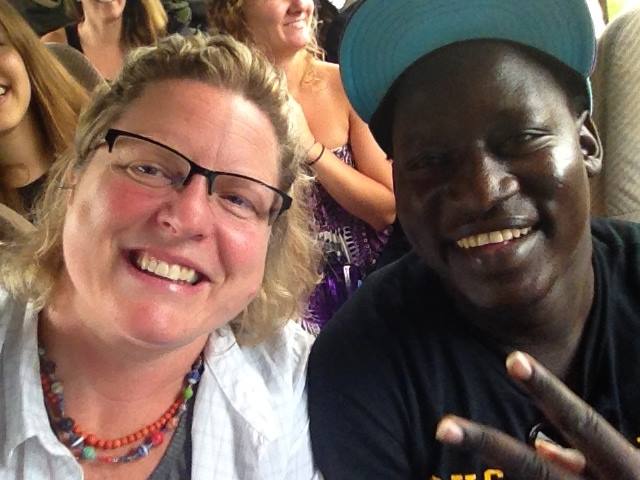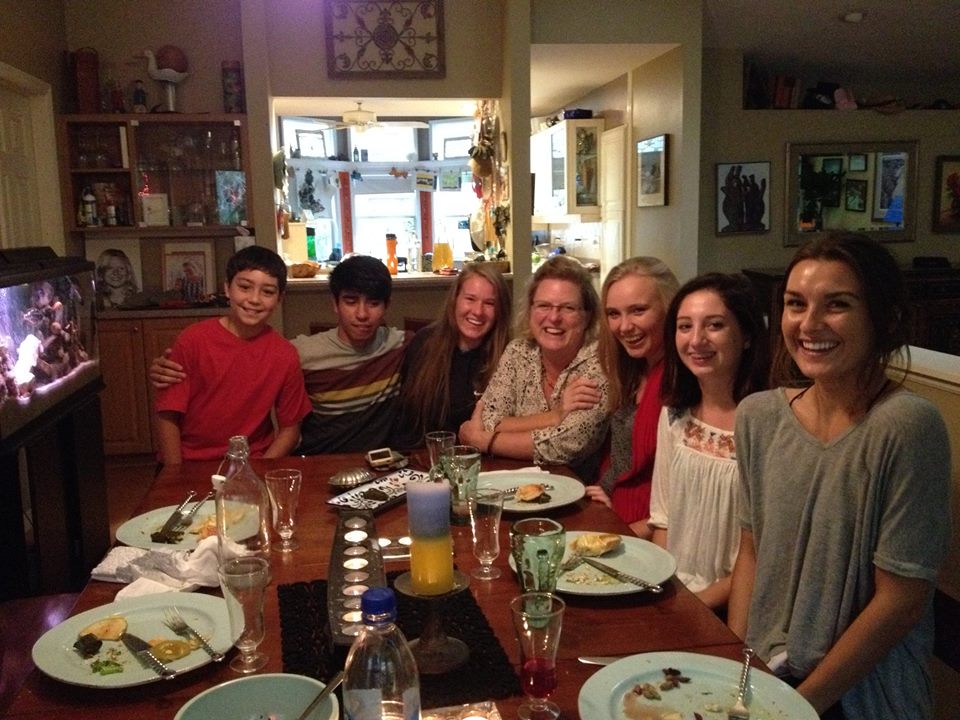Call us crazy, but we’re obsessed with the back-to-school season. For one, it’s an excuse to stock up on all the highlighters and Post-It notes could ever want… let’s throw in some gel pens, too. You get to see all your friends again, and that “first day of school” energy is something you can’t replicate. And of course, because we’re huge believers in the power of education.
Learning has always been a vital part of who we are at Invisible Children. Our recovery programs in northern Uganda have made education more accessible through Legacy Scholarships and Schools for Schools construction projects. And over the years, our Roadie tours have put on screenings at countless schools across the nation.
We believe teachers have incredibly powerful roles to inspire and empower young people, and schools are a great launching point to create opportunities and influence the world. So for this week’s supporter spotlight, we’re excited to introduce you to Camela Giraud, a teacher who’s doing amazing work in students’ lives – in her own classroom and in East and central Africa.

Camela joined other top fundraisers from #zeroLRA on a trip to Uganda a few months ago., to see our programs in action. Here, she poses with Tony.
Camela has been teaching high school English for about 20 years, and she heard about Invisible Children from her students in 2005, while teaching in Salt Lake City.
“I looked it up, ordered the Rough Cut, and was blown away,” she said. “I showed it to my students and they were blown away, and that was kind of the beginning of the first student group I was involved with.”
Since that year, she has continued to sponsor student groups to raise awareness, fundraise, and talk about global issues. In 2008, she brought the cause to Sarasota, Florida and started another club there.
“The first year, we raised enough to sponsor a student for a scholarship, so that was really exciting and it felt real. That gave us some legs and some legitimacy within the school.”
And from there, it kept taking off. The club grew overnight during Kony 2012. Several members attended the Fourth Estate Summit, and brought back more vision and inspiration. Roadies put on a screening at the school, and Camela invited them to a potluck at her house with the entire club.

She told us Invisible Children’s movement directly applies to her philosophy of teaching.
“For me, part of my attraction to IC is [because I see them] as a model of best practice for engaging young people. Students are being empowered to want to know what’s going on, because they believe that it matters that they know. They believe they can potentially get the attention of the government, affect policy, and actually change an approach to how the world looks at global conflict.
“It’s pretty simple – you just give students an opportunity to do something that’s real, something that matters. And then, you can do anything.”
Camela’s story is an incredible example of how our movement is not only changing lives in East and central Africa, but is also giving a deeper purpose to young people in the U.S. We need more teachers and global thinkers like her.
Think people should hear about this?